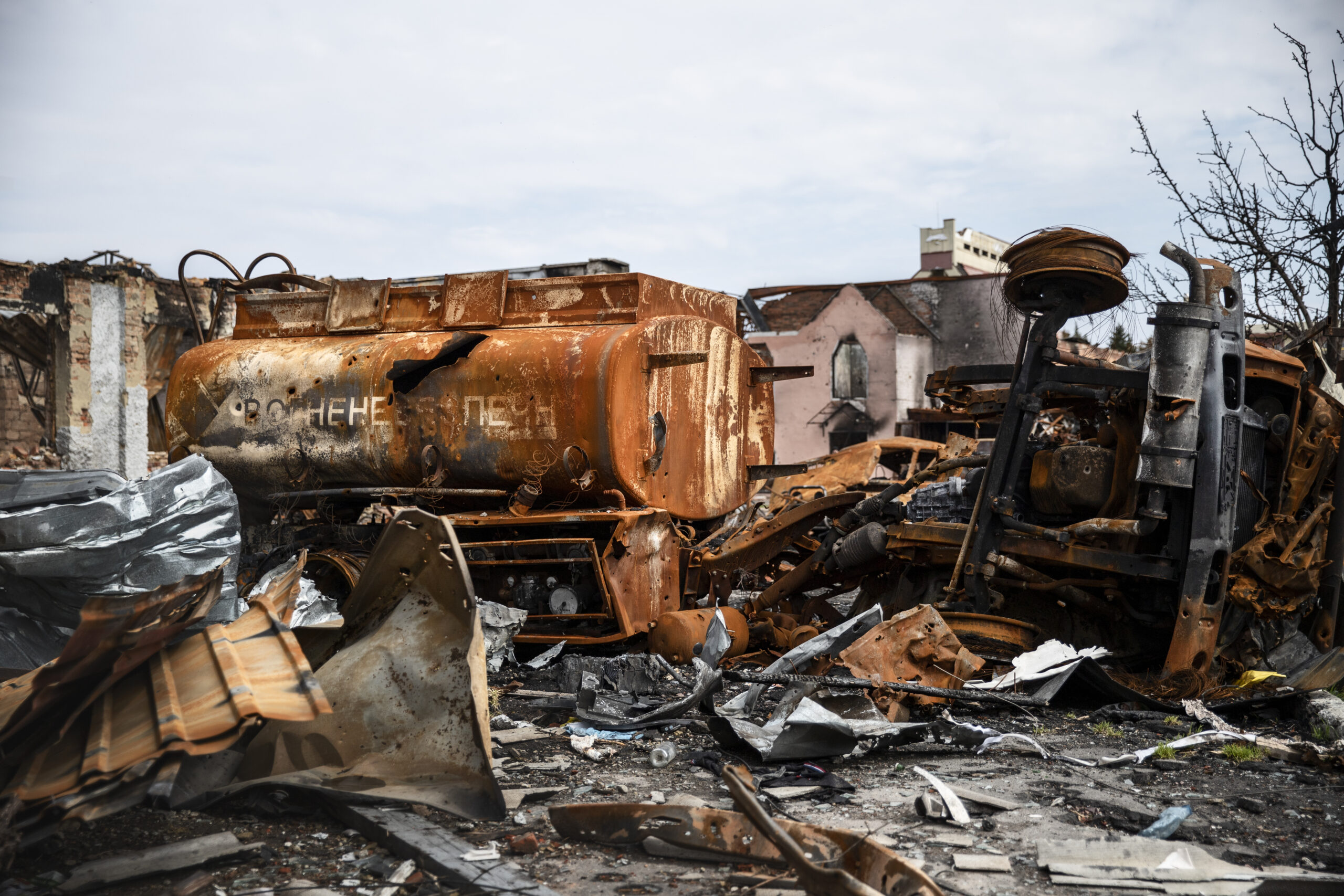The geopolitical earthquake sparked by the Ukraine-Russia conflict resonates far beyond European borders, sending seismic ripples through the globe’s economic, political, and environmental landscapes. In the eyes of many, Asia might seem far removed from this battle, but the intertwining threads of energy security, climate change, and regional stability cast a long shadow over the Asian continent.
The ripple effect of events in Eastern Europe underscores the nexus between conventional power struggles and the emerging realities of climate change. The Asian continent, home to the world’s fastest-growing economies and most populous countries stands at a pivotal juncture. Here’s how the Ukraine-Russia crisis is wordlessly scripting an uncertain, yet potentially transformational, future for Asia.
Fossil Fuel Tug‐of‐War
Ranked second among global oil producers, Russia, and a major exporter of natural gas, both are integral components of Asia’s energy mix. The political turmoil has intensified global concerns over fossil fuel supply and price volatility, bearing the potential to disrupt Asia’s intricate energy portfolios. The energy-hungry economies of China and India, in particular, face the daunting challenge of recalibrating their strategies amidst a turbulent global marketplace.
The Russian Rupture
The enforced isolation of Russia due to sanctions and corporate withdrawals from joint ventures is reconfiguring the country’s energy landscape. The consequent dip in extraction and export capacity has sent shockwaves across Asia’s markets, exposing vulnerabilities and disrupting long-standing supply ties.
Asian Energy Elaboration
For Asia, the quest for energy security is a perennial pursuit. Diversified supply channels, ramping up sustainable and renewable energy sources, and reducing reliance on imports from volatile regions are all part of this grand design. Asian economies are swiftly adapting, recalibrating their energy matrices to withstand potential jolts from the global chessboard of energy geopolitics.
Climate Change as the Great Unifier
The specter of climate change looms large over Asia, a continent highly susceptible to its capricious nature. The Ukraine-Russia crisis provides a clarion call to reevaluate the environmental implications of energy acquisition and consumption.
Ukraine’s Green Surge
Ukraine’s commitment to reducing emissions and increasing reliance on renewable energy stands in stark contrast to Russia’s more tepid climate policies. The conflict has underscored the role of climate action as a barometer for nation-building, with Ukraine emerging as an unlikely green pioneer amidst the devastation of war.
Russia’s Environmental Goliath
With one foot in Europe and the other in Asia, Russia’s environmental stewardship, or lack thereof reverberates across the largest landmass on Earth. From the Siberian wilderness to the industrial heartlands, the environmental footprint of Russian policies sets the tone for regional ecological health and the potential for global climate goals to materialize.
Geo‐Strategic Balancing Acts
The strategic vacuum created by the turmoil offers opportunities and challenges for Asian nations searching for their footing in this new world order.
Opportunities in Conflict
The crisis catalyzes a reexamination of alliances and allegiances. For Asia, this translates into fresh possibilities for diplomacy, trade, and regional security. The forging of ties with the West or pivoting to partnerships within their region becomes a critical strategic pillar for navigating the post-conflict dynamics.
Walk the Tightrope
Asian countries must tread a fine line, balancing economic interests with the moral imperative of supporting Ukraine while avoiding entanglement in a conflict not their own. This requires a nuanced and deft approach, leveraging influence for peace and regional stability while upholding broader international norms.
The Price of Unity
In the backdrop of human tragedy and economic adversity, there is a glimmer of hope that the crisis may usher in a new era of cooperation and shared responsibility.
Solidarity Beyond Borders
As the world community rallies behind Ukraine, solidarity takes on new meanings. It becomes a template for confronting shared challenges, including climate change and sustainable development. The Asian narrative, traditionally marked by its diversity, may now be transforming a more cohesive and united front against adversity.
Nurturing a Common Purpose
The confluence of an ever-evolving energy landscape, existential threats posed by climate change, and the galvanizing effects of political strife create the perfect storm for a new global ethos. The crisis offers an invaluable opportunity for Asia to recommit to shared aspirations, from reducing greenhouse gas emissions to fostering inclusive economic growth and peace.
Conclusion: The Asian Conundrum
The Ukraine-Russia war compels Asia to confront its dualities—of growth and green, of geopolitics and global responsibility. The crisis beckons the continent to redefine its narrative, liberating it from the shackles of past dependencies and charting a course toward a more sustainable, equitable, and secure future.
Amid a harrowing conflict, Asia finds itself at a crossroads— torn between the allure of fossil fuels ingrained in its economic machinery and the imperative of a greener, more ethical tomorrow. The decisions made today will echo in the halls of history, narrating the tale of Asia’s resolve or reticence in the face of change.
The upheavals wrought by the Ukraine-Russia war are neither isolated events nor mere footnotes in the annals of global politics. They serve as potent catalysts for revamping the very fabric of Asian societies and governments. The continent’s response to these challenges will not only define its role in the unfolding drama but also its legacy in shaping the future for generations to come.

Leave a Reply Cancel reply